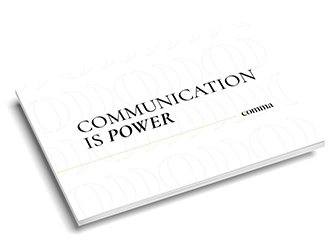I want to bring today to our blog an agitated debate that took place last week among the PR sector, after a controversial article written by journalist Emma Jacobs was published in the Financial Times. “Publicity is free with no PRs” was the title of the fateful piece. The author’s intention was, according to her own words, ” to look at companies that don’t use PR expertise – to find out why they don’t”.
But reading the article, we can only find a lot of harsh criticism about the job of PR professionals and agencies, with opinions of executives from the financial sector who consider our job unnecessary and useless. It throws a sad and old stereotiped image, the one that many journalists still have about the “dark side” of PR and press offices.
One of the examples that makes Ms. Jacobs assert that PR is irrelevant, and maybe the more controversial phrase in the article: “Warren Buffett spurns spin-doctors”. The piece explains how the billionaire investor prouds himself of dealing with the press and “other requests” with the only help of his uncomplaining assistant.
There is also Jon Moulton, the British private equity veteran, who is quite skeptical about PR experts, and even believes that sometimes they raise controversy simply in order to increase their fees. Instead, he prefers to deal with journalists directly, as he finds it easier “to be as open as I can”. But, wait, isn’t that what good PR’s do? Bring transparency to the organizations? Mr. Moulton has discovered that he won’t get into trouble with press if he is open and honest. Well, let me tell you that that is the first lesson that any good PR professional will teach you.
The article also quotes an anonymus communications director “of a listed European technology company” who claims that his company wastes tens of thousands of euros every year on external PR companies apparently for no reason: “I have no idea what they do for us.” Mmmmm, then why on earth do you hire them? It doesn’t sound like a very reliable Comms. Director to me… Then he continues with his self-mortification: “If my chief executive went out to meet a reporter directly without first speaking to me it would be a much better interview.” You are not doing a very good job there, are you? The purpose of preparing an interview with an executive is precisely to make it interesting and give value to the journalist.
Then we have Peter Hargreaves, co-founder and executive director of the independent financial advisor firm Hargreaves Lansdown, who considers preferable not to employ PR proffesional individual or teams, as they often provide a ‘too bland’ message. He considers that having some of the firm’s executives experts on their fields to deal directly with the press is a better strategy than putting a team of people “in the middle between the journalist and the expert”. This is ok if the experts are also good communicators. Unfortunately, by experience, the fact that somebody is an especialist on a certain topic does not mean that they can explain the subject and make it understandable for a not expert. That is what the PR team “in the middle” will do: make all the technical and complex information available to the press and the general public. Mr. Hargreaves, however, is still worried about the fact that “good news about the company does not filter through to the media”. Maybe a PR professional could explain him that those “good news” are, in fact, no news at all for a journalist. But I’m sure he can realize that by himself.
The only positive note in the entire article is the one referring to the increasingly powerful Social Media, and how PR experts can help to deal with the media and the public through the online channels. Apparently, when the new technologies come into scene, we become essential. Stephen Waddington, President of the Chartered Institute of Public Relations, is quoted in this part of the article, providing one of the key ideas in the discussion, which he later developed in the CIPR’s blog: “the fact laid bare by the fragmentation of media is that communications is what everyone does within an organisation. Social media has no respect for the traditional hierarchies within an organisation. Organisations are porous. (…) With the right communication strategies, content and engagement, employees have the potential to be the most powerful, and crucially, trusted advocates for an organisation”. The role of the internal communications professional is becoming more and more relevant, according to the article, as they can stablish the way that all the organisation communicates with the public. But that should be not only through the social media, but in every channel…
Obviously, the piece initiated a series of outraged responses by professionals of the PR sector who accused Ms. Jacobs of taking a one-side approach and not being a balanced article. The detractors also claimed that the image of the PR work was out of date and far from the reality of the work that takes place nowadays in the companies and agencies. Let’s see some of the responses from prominent members of the PR industry:
Mr. David Flynn, Head of Professional Services, Eulogy!, London, answered the article in a comment letter titled “Too many agencies doing a bad job“. He states in his text that “PRs (…) should be trusted advisers that help clients maintain, manage and enhance their reputation. If a director wants a relationship with journalists, a PR should help provide advice on how best to work with them, rather than prescript what the director should say.” Something much more close to the reality of the PR job than what the original article transmitted.
Christopher Graves, Global CEO at Ogilvy Public Relations, answered in the comments section on the website how his move to the public relations sector after spending 25 years in the news industry was “eye-opening”, and how the “long-held stereotypes evaporated and I felt mean-spirited and ignorant for having held such narrow views of an entire profession”. Mr. Graves continues stating that “Today, serious public relations professionals must have a solid expertise in one or more such domains, and must then work to reshape the old corporate-speak of messaging into a far more authentic, interesting, and humble narrative that someone might care about”.
And last, but not least, Richard Edelman, president and CEO of the world’s largest public relations firm, gave his response to the article on a furious post on his blog: A Fundamental Lack of Understanding.
I consider that the biggest mistake on Ms. Jacobs article was to base her description of PR professionals on subjective and always negative opinions, giving a partial view of the reality of our work. The people quoted in the text have probably had bad experiences with awful professionals in the past, but that doesn’t give a full and equitable look on the sector.
What do you think?
[arve url=”http://www.youtube.com/watch?v=L24Wol8yLwo”]





